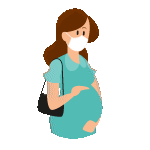We all know that breastfeeding is good for baby's immune system and baby should be exclusively breastfed for the first six months. Breastfeeding may be natural but honestly it is equally difficult for the first time mothers. It is so difficult that some new moms just give up. The initial days of my mom life were full of ups and downs. Within the first weeks of breastfeeding, my nipples were sore and chapped. I dreaded every feeding session. Breastfeeding had become an ordeal for me. But with patience and time everything fell into place. I have shared few tips below that would help any new mother to be comfortable in this journey:
- Trust your body and your instincts. Don't give in to the societal pressure of nursing your baby in the first few hours of his/her birth. If you are comfortable enough to sit independently, hold your baby and feed, only then go ahead
- Getting that perfect feeding position takes time. Keep feeding your baby until you get that easy position
- Latching baby properly is another thing that needs practice. See to it that your breasts are not covering baby's nostrils. Also, help baby to put complete nipple into his/her mouth instead of only the tip for that perfect latch
- Don't be freaked out if you seem to be feeding constantly in the first few days, it will settle down a bit when your milk flow increases
- Don't get stressed over the point whether baby is feeding well or not. If baby is wetting too many diapers, it’s the sign of being nursed well
- Keep feeding your baby to have a steady milk flow. The more you feed the more will be the milk supply
- Keep yourself hydrated. Drink lots of water
- Keep moisturizing the nipples with simple stuff available in every kitchen like olive oil or home-made butter. You can also invest in a good quality nipple balm available in the market. There are plenty options now-a-days
- Eat food that helps in increasing supply. Food items like green leafy vegetables, fresh fruits, oatmeal, almonds, dill leaves, fenugreek seeds, fennel seeds, salmon etc. help in increasing milk supply
- Stay away from food that is gaseous
- Make sure you are burping baby after every feed session to avoid making babies colicky
- Don't be afraid to breastfeed in public. Trust me it’s a big deal only for the first time. After that it’s going to be very easy to feed anywhere on demand
- Invest in a good nursing cover; it is going to be your companion for the next two years
- Do not over spend on nursing tops or dresses. Lifting your top and feeding is much easier and provides more cover than nursing tops
- Don't hesitate to ask for help, people love to extend a helping hand to new moms
- If you have too much milk then you might need to make sure you are draining the breasts by feeding regularly (or pumping, although this can bring in even more milk), otherwise you can end up with a blocked duct or mastitis. If you feel engorged then you need to feed or pump to relieve the pressure.
- “Sleep when baby sleeps” is a great theory but very hard to put into practice. But if you can have at least one nap a day with your baby, you will feel a lot better
- And lastly, do not worry if you are not lactating enough. Consult your pediatrician and formula feed your baby. Nothing matters more than your baby and only you can understand what is best for him/her
Do share your tips on breastfeeding in the comments below!
FAQ's
Q. Is it normal for breastfeeding to feel painful in the beginning?
Ans.Yes, many new moms experience soreness or chapped nipples in the initial days. This is common as your body adjusts and your baby learns to latch. With time, proper positioning, and nipple care using balms or natural oils, breastfeeding usually becomes more comfortable.
Q. How can I ensure my baby is latching properly?
Ans.A good latch means the baby takes the entire nipple and part of the areola into their mouth, not just the tip. Ensure the baby’s nose isn’t blocked by the breast and gently guide them if needed. A proper latch helps prevent nipple pain and improves feeding efficiency.
Q. What are signs that my baby is getting enough milk?
Ans.Wet diapers are the best indicator. If your baby wets 6–8 diapers a day and is gaining weight steadily, they are feeding well. Don’t stress over how long or how often they feed — frequent feeding is normal in the beginning and helps boost milk supply.
Q. How can I increase my breast milk supply naturally?
Ans.Milk supply increases with frequent breastfeeding. The more your baby nurses, the more milk your body produces. Stay well-hydrated, eat lactation-friendly foods like oats, almonds, fenugreek, and leafy greens, and rest as much as possible to support overall health and milk production.
Q. What foods should I avoid while breastfeeding?
Ans.Avoid overly spicy or gaseous foods such as cauliflower, cabbage, or excessive caffeine, as they may cause discomfort to your baby. Every baby reacts differently, so monitor how yours responds and adjust your diet accordingly to reduce colic or gas.
Q. How do I care for sore nipples while breastfeeding?
Ans.Apply natural moisturizers like olive oil or homemade butter after feeding. You can also use medical-grade nipple balms available in stores. Let nipples air dry after nursing and ensure a proper latch to prevent further irritation or cracking.
Q. Can I breastfeed in public without feeling awkward?
Ans.Yes, breastfeeding in public may feel awkward at first, but it becomes easier with practice. Use a good-quality nursing cover for privacy and comfort. With time, confidence builds, and you’ll feel more relaxed feeding your baby wherever needed.
Q. What should I do if I have too much milk or feel engorged?
Ans.If you’re producing more milk than your baby consumes, feed regularly or pump to relieve pressure. Unrelieved engorgement can lead to blocked ducts or mastitis. Feeding on demand helps regulate milk supply and prevents discomfort.
Q. Should I invest in nursing clothes?
Ans.There’s no need to overspend on nursing wear. Regular loose tops work just fine — lifting your top to nurse often offers more coverage and comfort than many nursing-specific clothes. Instead, invest in a reliable nursing cover for breastfeeding on the go.
Q. What if I can't produce enough milk?
Ans.If you’re struggling with low milk supply despite efforts, consult your pediatrician. It’s okay to supplement with formula if needed. Your baby’s health and happiness matter most, and there’s no shame in choosing what works best for you and your baby.




















